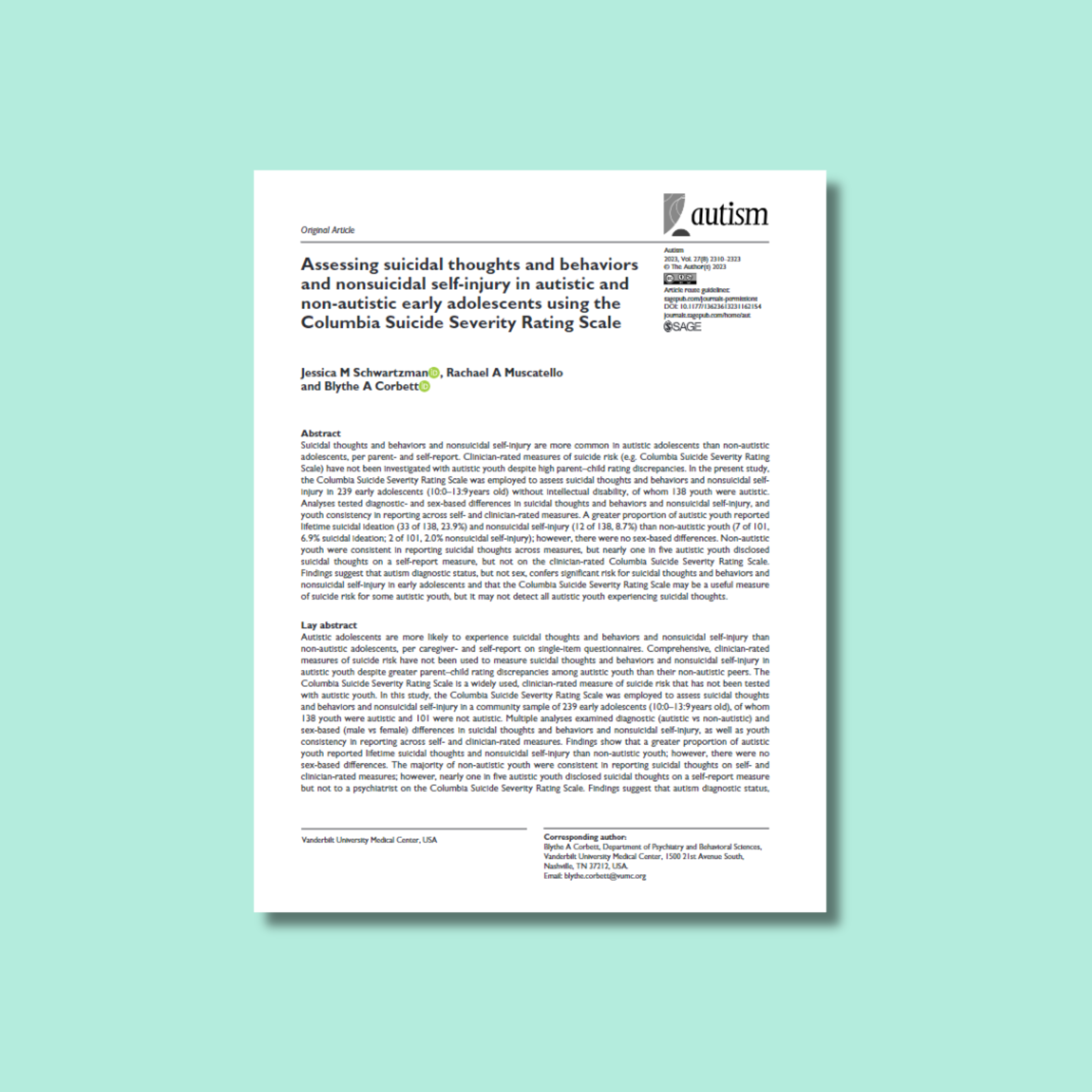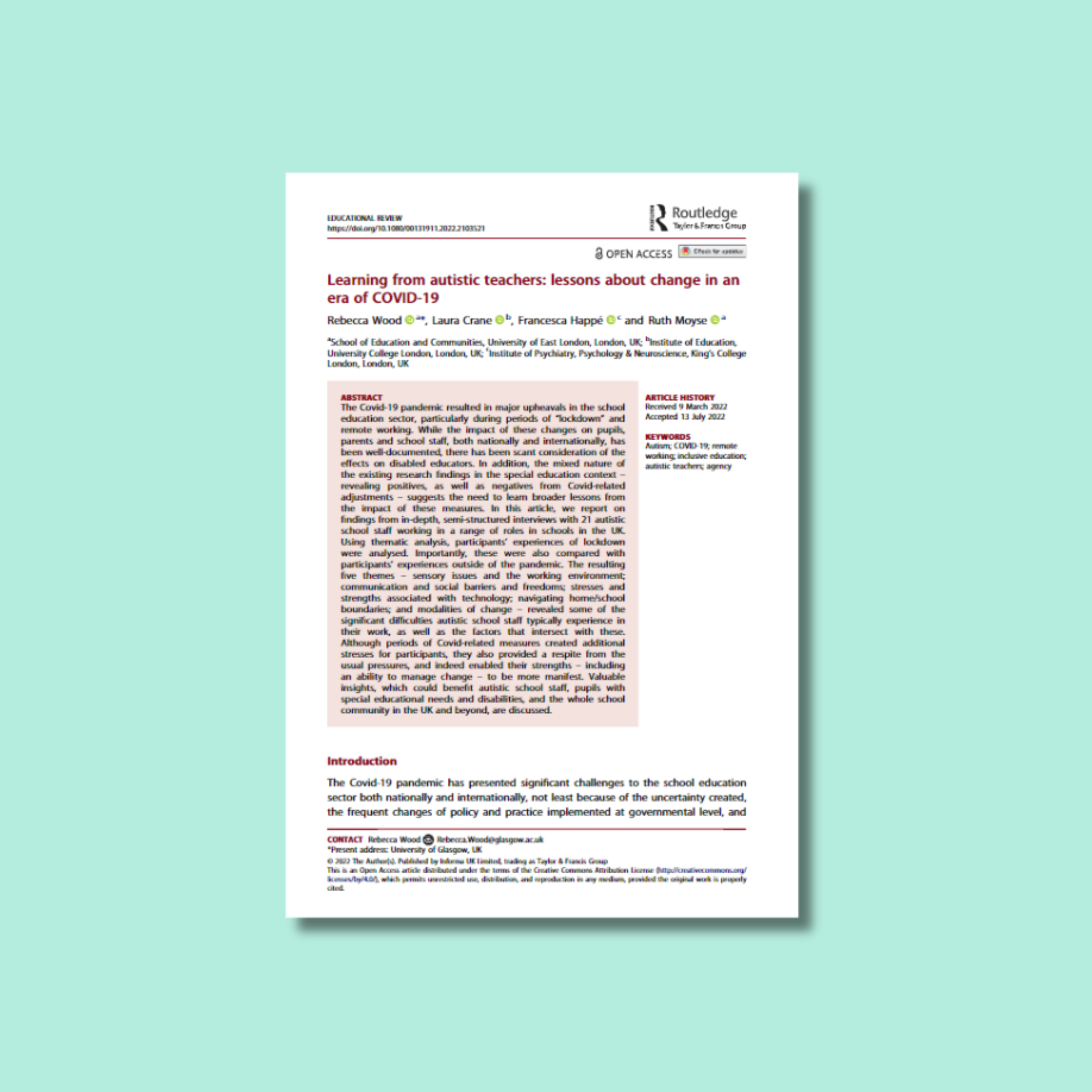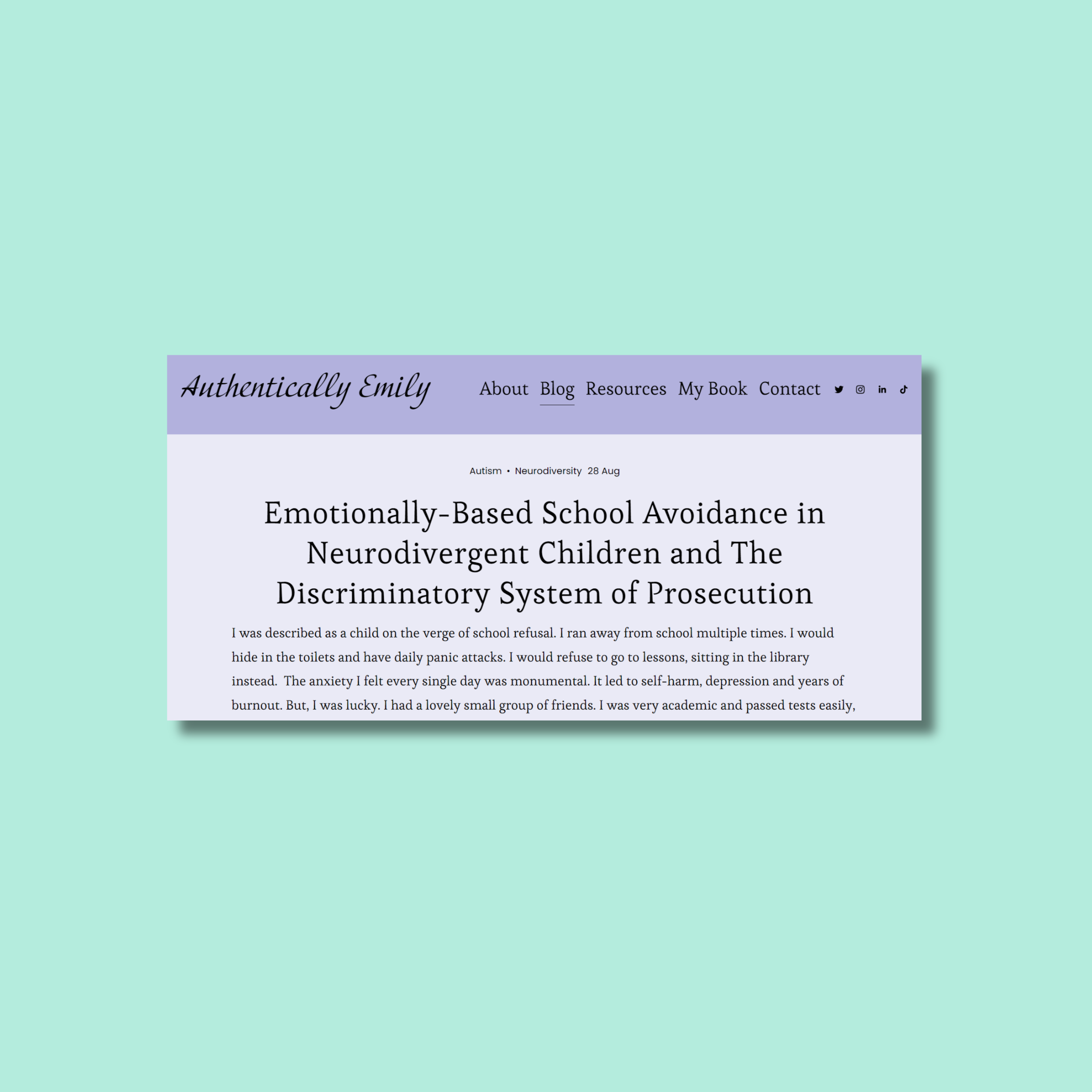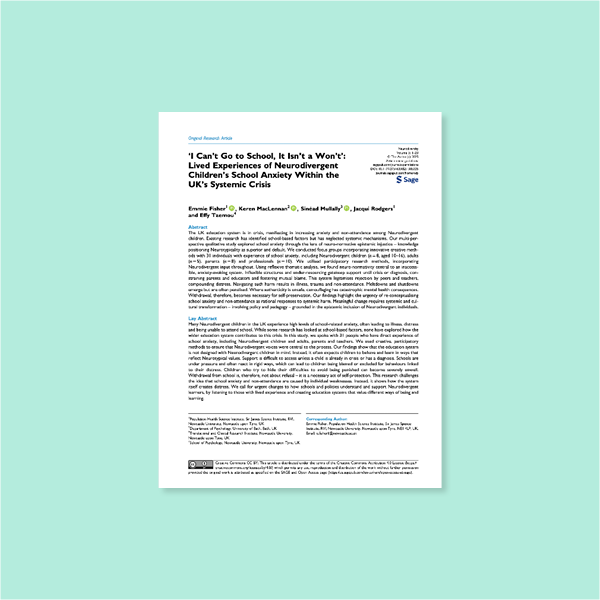 Image 1 of 1
Image 1 of 1


Assessing Suicidal Thoughts and Behaviors and Nonsuicidal Self-Injury in Autistic and Non-Autistic Early Adolescents Using the Columbia Suicide Severity Rating Scale
Schwartzman, Muscatello and Corbet (2023)
Autistic adolescents are more likely than their non-autistic peers to report suicidal thoughts and nonsuicidal self-injury, with these risks not differing by sex. While the Columbia Suicide Severity Rating Scale shows potential for assessing suicide risk in some autistic youth, it may miss cases, as nearly 20% disclosed suicidal thoughts in self-reports but not to a clinician using the scale.
Disclaimer: discusses suicide and self-injury.
Schwartzman, Muscatello and Corbet (2023)
Autistic adolescents are more likely than their non-autistic peers to report suicidal thoughts and nonsuicidal self-injury, with these risks not differing by sex. While the Columbia Suicide Severity Rating Scale shows potential for assessing suicide risk in some autistic youth, it may miss cases, as nearly 20% disclosed suicidal thoughts in self-reports but not to a clinician using the scale.
Disclaimer: discusses suicide and self-injury.






